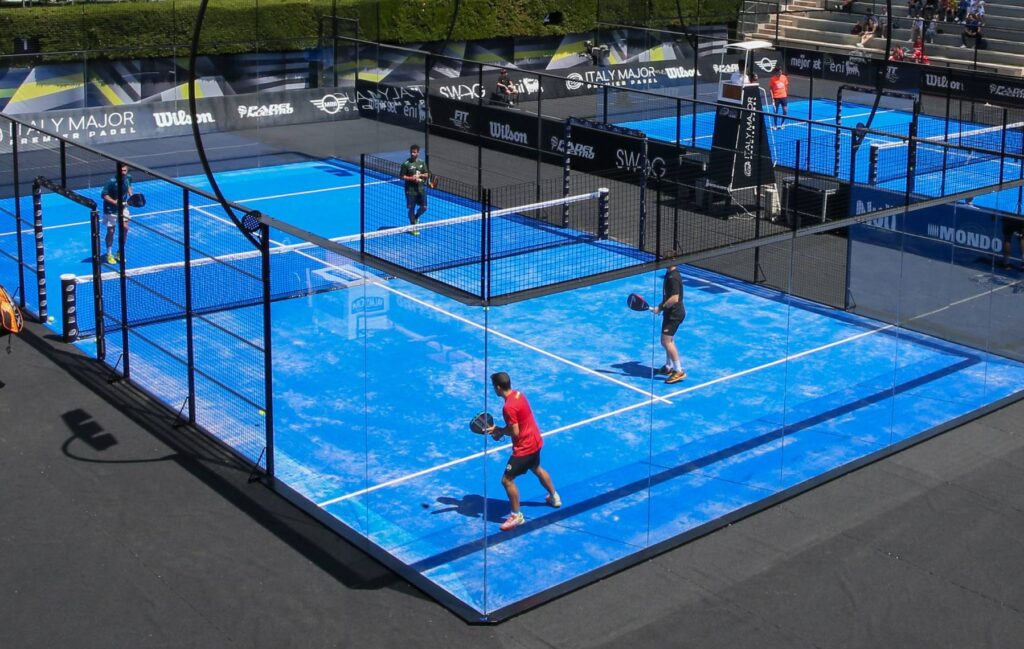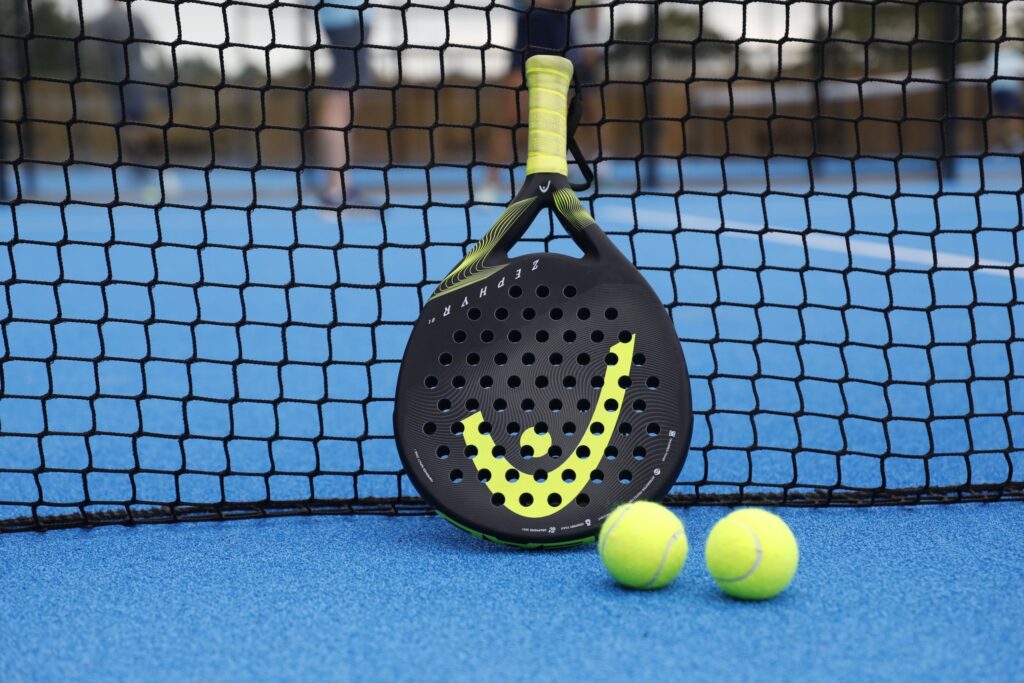If you’ve scrolled through Instagram lately, you’ve probably seen it: pastel courts, cool rackets, people in retro sports fits laughing mid-swing. Nope, it’s not tennis. It’s padel — the sport that’s gone from niche to booked and busy faster than you can say “court availability: sold out.”
This summer, padel hasn’t just been a sport. It’s been a scene. Young people have claimed it, owned it, and made it one of the most social, stylish, and surprisingly addictive activities in the UK.
But why is this not-quite-tennis, not-quite-squash hybrid blowing up right now? And more importantly — what’s it doing for young people beyond the Instagram flex? BBC Sports
From Spain to Shoreditch — How Padel Landed in the UK
Padel isn’t new — it’s been massive in Spain and Latin America for years. But in the UK, it’s been quietly building momentum until this summer, when everything clicked:
- The courts popped up in the right places — trendy London sports clubs, seaside resorts, and even rooftop setups.
- Celebs and influencers jumped in — from footballers to Love Island alumni posting “first game” selfies.
- Young people were looking for something fresh after being bored of the same gym routines and 5-a-side matches.
The vibe? Sport meets social club. You’re playing, but you’re also networking, laughing, and getting that all-important content.

Why Young People Are Hooked to Padel
Here’s the thing: young people are over sports that feel exclusive, expensive, or too serious. Padel checks none of those boxes. Forbes
1. Easy to Pick Up
Unlike tennis, you don’t need years of lessons to be good enough to enjoy it. The court’s smaller, the ball’s slower, and the rules are forgiving. That means you can jump in as a complete beginner and still have fun from day one.
2. Social Over Sweat
You’re playing doubles, so there’s built-in banter. It’s competitive, but in a “let’s go for brunch after” way.
3. Affordable-ish
While prices vary, a padel session generally costs less than a full tennis club membership. Plus, gear hire is often included.
4. Insta-Ready
Let’s be real — the sport’s aesthetic is part of the appeal. The courts look good. The fits look better. And yes, the Boomerang of your winning shot will hit.
Impact Padel has had on Youth Culture & Wellbeing
Here’s where it gets deeper. Beyond the hype, padel is actually ticking boxes young people have been craving — especially after years of pandemic isolation, cost-of-living stress, and the mental health crunch. GQ
1. Mental Health Boost
Any sport helps with mood, but padel’s mix of movement, laughter, and teamwork hits different. You’re not alone in a gym — you’re in a mini-community, and that connection can be gold for mental wellbeing.
2. Networking Without the Awkwardness
Young professionals, creatives, students — padel courts are full of them. It’s becoming a way to meet new people without the awkward networking event vibe. You leave with new friends, maybe even a new collab or opportunity.
3. Accessibility & Inclusivity
Unlike golf or certain tennis clubs, padel feels open. You don’t need private-school sports experience to be welcome. And with more urban courts opening, it’s reaching communities who might have been locked out of similar spaces before.
The Money Side — A Growing Industry for Young Entrepreneurs
Where young people go, opportunity follows. We’re already seeing:
- Content creators building padel-focused accounts — tutorials, outfit inspo, match highlights.
- Event organisers hosting padel socials, tournaments, and charity matches.
- Brands jumping in with sponsorships, merch drops, and collabs.
For business-minded youth, padel isn’t just a pastime — it’s a growing industry with space for creatives, marketers, and event planners. Saga
Padel Barriers & What Needs to Change
As much as padel’s booming, it’s not perfect.
1. Court Availability
With so much hype, courts are often fully booked weeks in advance. That means casual, drop-in play isn’t always possible.
2. Location Gap
Most courts are still concentrated in major cities or affluent areas. If you’re outside the urban bubble, your access is limited.
3. Cost for Some Communities
While cheaper than tennis club memberships, it’s still not free. Without student discounts or community programmes, some young people will be priced out.
If padel’s really going to stay and grow, it needs investment in community courts, affordable rates, and outreach in underrepresented areas.
So, Is Padel Here to Stay?
All signs point to yes. And if young people keep driving the culture around it — from streetwear-meets-sportswear looks to music-backed tournaments — it could become a permanent part of the UK’s youth sport scene.
The real win? It’s giving young people a fresh space to connect, stay active, and create — something we’ve been missing for a while. And if that comes with a killer Instagram reel? Even better. RedBull

Final Serve
Padel’s not just a sport — it’s a movement. It’s part of a bigger shift where young people are reclaiming activities, rewriting the rules, and making them more social, inclusive, and style-driven.
This summer proved it’s more than a passing trend. The challenge now is making sure the doors stay open, the courts stay accessible, and the culture stays as vibrant and welcoming as it is right now.
So, whether you’re picking up a racket for the first time or just there for the vibes — welcome to the game.
Thank you for reading, click the link to read more of our Sports Articles
Zita Salum, a British, Tanzanian journalist with a London heart, is making waves in the world of media. Born and Raised in Hackney London, she discovered her passion for storytelling at a young age. Her journey began as an admin for the Inside Success magazine, but her talent quickly shone through. Zita's ability to craft compelling narratives and her knack for capturing the essence of a story led her to become an editor for the magazine.
From there, her career soared. Zita has contributed to a diverse range of publications, including the prestigious W magazine, showcasing her versatility as a writer. Her expertise spans across industries such as music, corporate, political, sports, arts, and fashion. Beyond her written work, Zita has also excelled in broadcast journalism. Her natural ability to connect with interviewees and her engaging hosting style have made her a sought-after talent in the industry.
In her free time, Zita is a dedicated networker, attending industry events and immersing herself in the latest trends. She is also passionate about investigative journalism and has produced creative documentaries that shed light on important issues. With her talent, drive, and unwavering commitment to her craft, Zita Salum is undoubtedly a rising star in the world of journalism.




Leave a Reply
You must be logged in to post a comment.